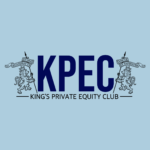
By Axel Grundemar, the Head of Events at KPEC
Germany 2050, Sweden 2046, China 2060. What do these numbers and countries have in common? They signify the projected year by which these mighty countries have declared to be officially carbon neutral. Now, why is this of interest? To begin with, it reinforces the importance of Impact Investing and demonstrates that it is here to stay. After all, the term was coined only in 2007. Yet the term is a novel and somewhat controversial concept among established investors, where it is still classified as a niche. However, with an increasing number of governments and the entire European Union taking such clear stances on climate abatement, the sustainable trend cannot be ignored anymore: it is here to stay. This article is here to walk you through the key points about Impact Investing, so you won’t be left behind.
In a nutshell, Impact Investing focusses on urgent societal and/or environmental issues, such as climate change, with the deliberate intention to have a positive impact through the investments. On its surface, impact investors could be described as investors who take corporate social, environmental, and governance (ESG) factors into their calculation when assessing investments. However, within this broad category, three sub-divisions can be distinguished: those who maintain focus on generating financial returns that are on par with or above market-rate, those who may or may not deliver such gains and lastly, those who willingly accept a trade-off of financial lucrativeness for the benefit of positive impact. It is important to note that all three types of investors allocate funds intending to spawn positive change in the face of social and environmental challenges, and as such, all of them are impact investors.
The spectrum of sectors within the larger category of Impact Investing is broad and diverse, ranging from food and agriculture to education, energy and forestry, to mention a few. Moreover, this is an investment approach applicable across all asset classes, from public markets to Private Equity and even real estate and infrastructure. This is both a virtue and a vice. There is great potential for doing good without having to confine oneself to one specific area on the upside. However, this also poses some problems based on measurability: how can we compare different Impact Investments to each other, and how is the positive impact supposed to be measured? How can the positive effect generated be equalised to the lowest common denominator? For example, what metric could be put on the value of saving a piece of woodland threatened by deforestation that could be compared to providing education to the children of an impoverished community? This might be the most pressing issue of the sector at the moment, and overcoming it is crucial for credibility and accountability.
A common approach, used by around two-thirds of impact investors, is the United Nations’ 17 Sustainable Development Goals as a benchmark to rely on and substantiate the good they contribute in a unified manner. However, a standardised framework for measuring the impact of the Impact Investments is yet to be established. The previous obstacle of gaining acknowledgement and recognition within the established investment spheres is ever so slowly being overcome, but in order to present itself as a credible alternative to traditional investing, measurability is key.

With an estimated market worth of $715 billion, Impact Investing is not to be discounted. Moreover, the IFC believes there is a potential market worth $26 trillion, which equals around 10% of the global financial asset market. The current trajectory suggests the actual market is growing closer to that number, as Private Equity firms are launching impact funds to banks, wealth managers, pension funds and corporations. To cite KPMG, the PE firms are “injecting billions of new capital and drawing in institutional investors that haven’t historically been attracted to this area.” This unmet demand for financing solutions to today’s most pressing issues and the future has attracted Private Equity firms. Even on the retail side, several products have been launched in the market for private investors to place their money.
A common criticism from sceptical, conservative, investors is that turning to Impact Investing comes at the expense of a financial trade-off. It may seem too good to be true that philanthropy could be combined with high profits for companies and ample returns for investors. However, real-world data says otherwise and seems to point at the fact that they can be mutually reinforcing. When investing in infrastructure, supporting communities’ basic needs in third-world countries, value is created for both citizens and stakeholders. Another clear case example is Ostro. Ostro is an Indian renewable energy business operating in a country where a staggering 200 million people lack access to electricity — needless to say; there was an opportunity for positive impact here. Four years after its founding, Ostro was sold to Goldman Sachs-backed ReNew Power, which indeed found that its strong ESG contributions were factors that boosted valuation. Evidently, it is possible to combine the two ambitions. However, the sector is still in its infancy, with the future ahead of it. Although there are obstacles to be overcome, the fact that so many countries are uniting around a common goal to become carbon neutral is an indicator as clear as can be of the increasing significance of Impact Investing.
Exclusive Offer: Get £100 off your Summer Internship Experience at Amplify Trading by clicking here or using our unique discount code at the checkout: MSAmplifySummer2021. Participants graduate from the course with a Diploma from the London Institute of Banking & Finance. For more information about the course, click here.

King's Private Equity Club
King's Private Equity Club is a student society at King's College London, providing a high quality of networking, speakers, workshops and social events to the King's Community. Our goal is to improve our members understanding and employability.